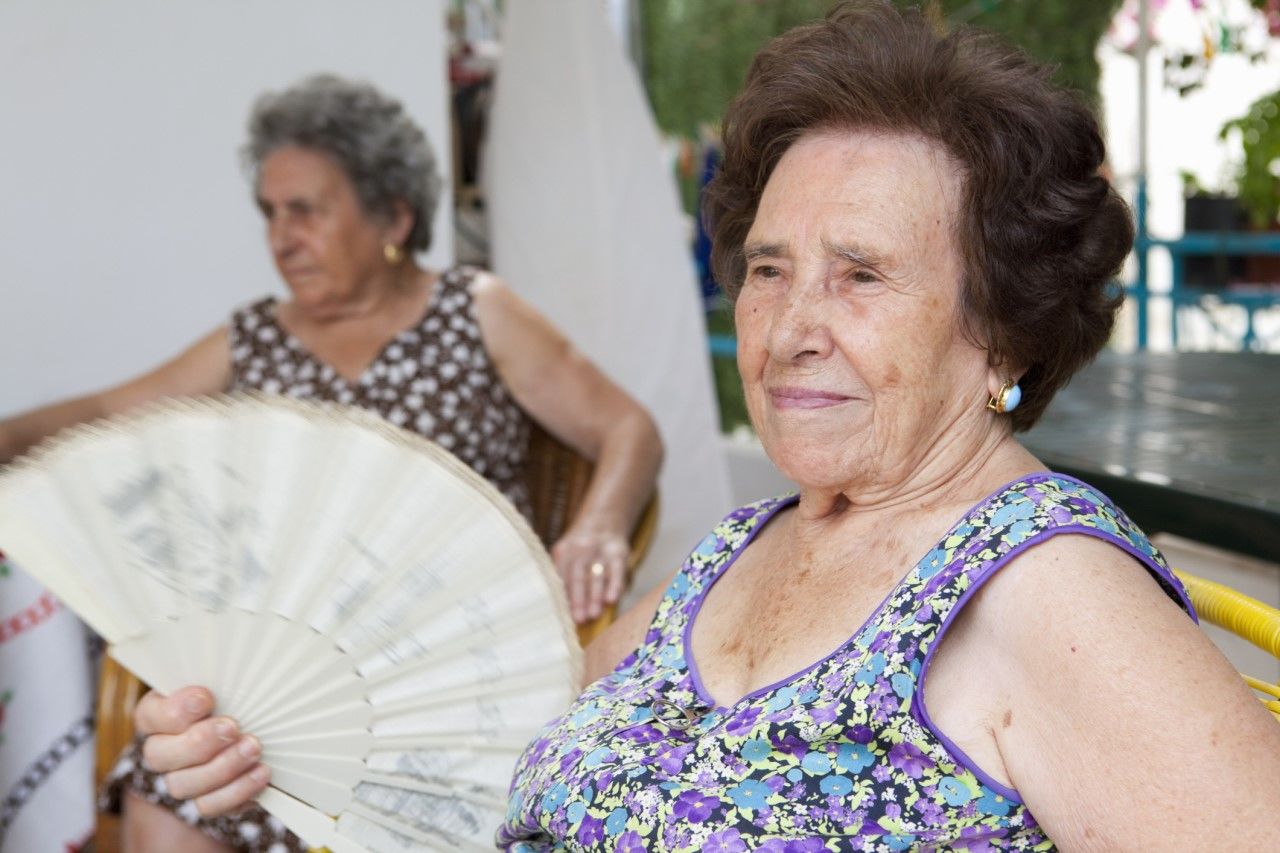Beat the heat and save money – your heart will thank you
Did you know that during extreme heat people with heart problems are more likely to go to hospital? Here's some tips to help you stay safe and comfortable.

During times of extreme heat, our bodies adapt to help us cope with the changed temperature.
Our blood vessels widen to send blood to our skin, which lets heat leave the body. This lowers our blood pressure, but then prompts the heart to work harder to keep blood circulating. If we have problems cooling down quickly, combined with an air temperature that is too warm or is high in humidity, it means our sweat can't evaporate, forcing our heart to pump faster for longer.
Dehydration makes it worse, forcing the heart rate up even more.
This can be life threatening for people with coronary heart disease or arrhythmia.
Not surprisingly, medical experts have identified older people as being at risk. That’s because they are more likely to have changes in blood pressure, be on medications that treat blood pressure and remove fluid, and have underlying heart disease.
Also, older people don't sweat as much as younger people, which can affect cooling too.
Spare a thought for your young grandchildren. Although they are at the other end of the age spectrum, young children can lose fluid quite quickly, particularly in dry heat, because they have a lot of skin surface area for their body mass. Replacing fluid is important, especially in children under 2 years.
The researchers found that while cranking up the air conditioner does work, it's not the most efficient way to cool off at home, and it can be expensive.
Ener the humble pedestal or ceiling fan.
Fans run on less electricity, and they boost the cooling effect of air conditioning.
Running a fan in an air-conditioned room means you can raise the thermostat three or four degrees, and still have the same level of comfort.
This means it’s possible to tolerate hotter days before you use your air conditioner – and you can turn it on later and turn it off earlier. University of Sydney researchers calculated that if everyone in Australia went fan-first in summer, the average amount of electricity that's used to cool all buildings would drop by 70 per cent.
Fans alone are good at keeping our body temperature at a safe level for healthy people, even in extreme heat.
Researchers found fans are effective in temperatures up to 39 degrees for healthy adults aged 18-40, and 38 degrees for healthy over-65s.
But there are times when fans should not be used on their own. During intensely hot, dry weather, such as 45-degree-plus days, fans simply blast hot air like an oven. So not only do we not cool off, but we dehydrate faster. This can be deadly.
The best way to cool off is by spraying or daubing room temperature water on your skin, rather than sticking your feet in a bucket of it.
Researchers say lots of water on the skin surface gives an overall benefit of extra evaporative heat loss and reduces cardiovascular strain because it keeps your skin temperature lower.
It’s not just about temperature, be aware of the humidity too. With very high humidity, you lose the in-built cooling mechanism of sweating.
Drinking sufficient water is also important, as it aids your body to monitor how your body is coping.
ANU’s Dr Arnagretta Hunter says older people are at particular risk.
"Part of the initial issue when you are beginning to develop heatstroke or heat-affected disease is some degree of confusion," Dr Hunter says.
"An increase in your resting heart rate is quite a good sign that you're starting to become dehydrated or heat-stressed." For more information on the resting heart rate and how to measure it, visit the government’s Health Direct website.








